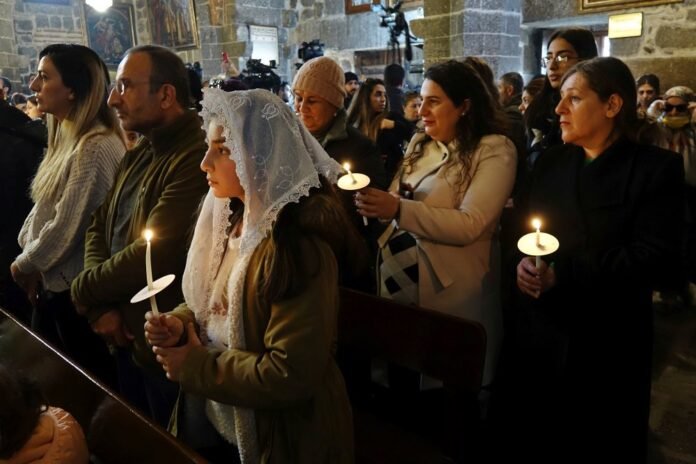Alliance Defending Freedom International (ADF International), a Christian advocacy group, has accused Turkey of misusing national security laws to expel more than 200 Christian workers and their families, affecting roughly 350 individuals.
Speaking at the Organization for Security and Co-operation in Europe’s human rights conference in Warsaw on October 13, the group said officials have assigned security codes such as N-82 and G-87 to foreign Christians, labeling them as national security threats and banning them from returning without evidence of wrongdoing.
“These are peaceful residents, pastors, teachers, church volunteers, who have lived in Turkey for years with their families,” Lidia Rieder, legal officer at ADF International said. “Labeling them as threats is a clear misuse of the law and an attack on religious freedom. Freedom of religion cannot exist if believers live under threat of expulsion for practicing their faith.”
ADF International said deportations and entry bans have increasingly been used to silence foreign Christian workers, while theological education for Christians remains severely restricted. The Halki Seminary remains closed, and Protestant seminaries lack legal recognition, Bible education is prohibited and in some cases, Christians have even been removed from places of worship.
“These practices reveal a pattern of systemic discrimination against Christians in clear violation of Articles 9 and 14 of the European Convention on Human Rights and Turkey’s own constitutional guarantees,” the group said in a statement.
Turkey’s government has denied accusations of religious discrimination. On October 15 the country’s Center for Combating Disinformation called the claims “completely unfounded” and part of a “deliberate disinformation campaign.” It said administrative actions against foreign nationals are based on various legal and regulatory grounds, including visa violations and threats to public order.
One of the individuals ADF International is representing is Kenneth Arthur Wiest, an American who was denied re-entry to Turkey upon returning from a trip to the US, despite having lived legally in Turkey for over 30 years.
The group alleges Wiest was targeted for his involvement with a Christian church and that his case is part of a broader crackdown on foreign Christians.
Wiest was given an “N-82” label, meaning he needed prior approval from the Ministry of Interior to re-enter the country. He was denied that authorization, and Turkish courts would not let him challenge the ban. He and his legal representatives were also not permitted access to documents related to the rationale behind imposing the travel restriction, and Turkey’s Constitutional Court dismissed Wiest’s claims as “unsubstantiated.”
The European Center for Law and Justice, which submitted observations in the Wiest case, argued that the entry ban appears to reflect a broader effort to restrict Christian missionary activity. It said no similar measures have been taken against foreign Muslims.
The European Court of Human Rights (ECtHR) is expected to soon issue a decision in the case, one which ADF International said will “set a crucial precedent for the protection of religious freedom in Europe and beyond.” The organization added that Wiest’s “case represents the growing number of believers punished for peacefully practicing their faith.”
“Christians in Turkey, for the most part, predate and are alien to the Turkish nation, and therefore perceived as a threat to the country’s unity,” the center said in a filing.
The Wiest case is one of over 30 being brought by ADF International before the ECtHR and Turkish courts. The outcome could shape broader legal standards for religious freedom in Turkey.
The issue has drawn attention from international religious freedom advocates, including the U.S. Commission on International Religious Freedom, which has recommended placing Turkey on the State Department’s Special Watch List.
In 2018 tensions between the US and Turkey escalated over the detention of American pastor Andrew Brunson, prompting then-president Donald Trump to impose sanctions. Brunson was released later that year after two years in custody.
Thibault van den Bossche, an advocacy officer with the European Center for Law and Justice, said Turkey has since shifted to quieter administrative measures to limit Christian activity. “No arrests, no trials — just refusals of entry or non-renewals of permits, citing ‘national security,’” he said.
Although making up less than 1 percent of the population, Christians in Turkey have been facing increasing hostility, with the state often failing to prosecute acts of discrimination and violence.















